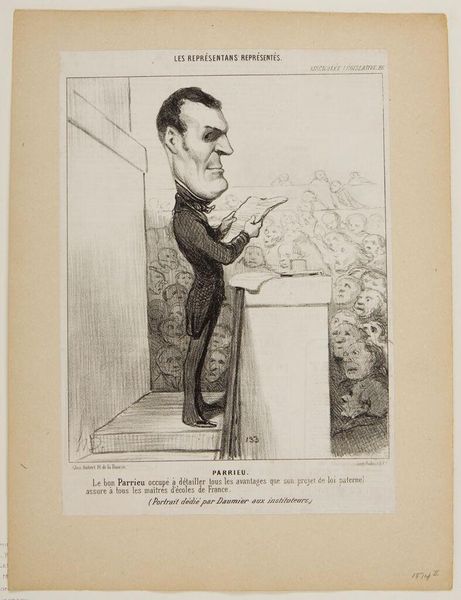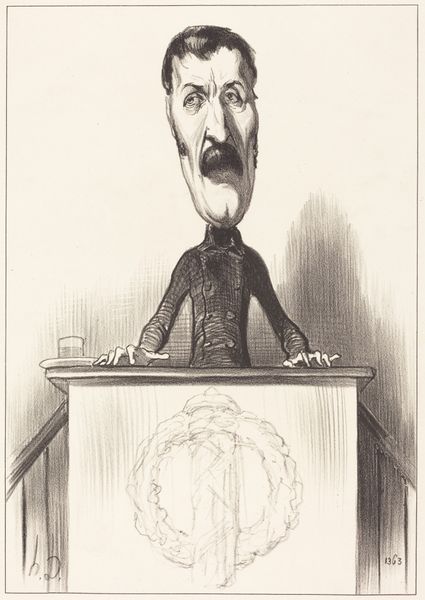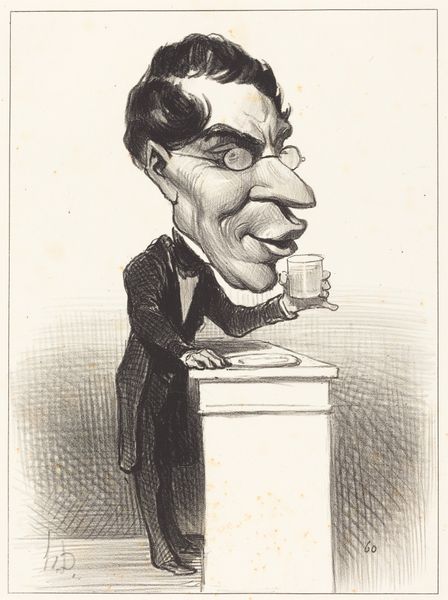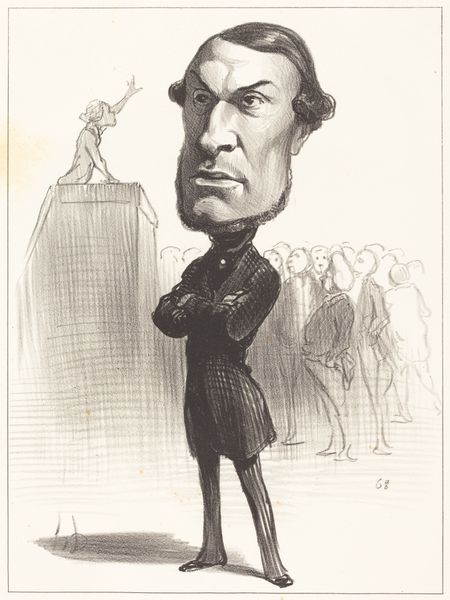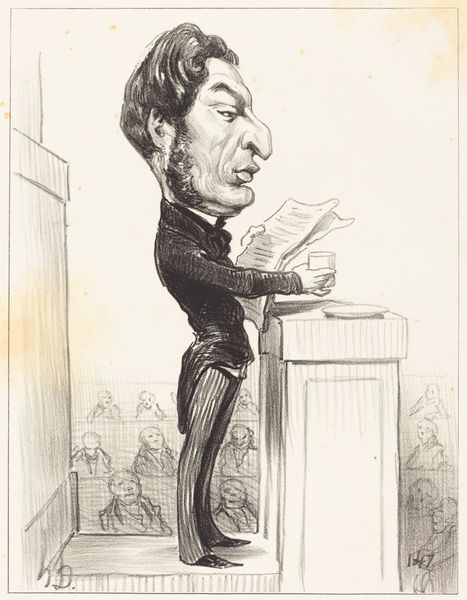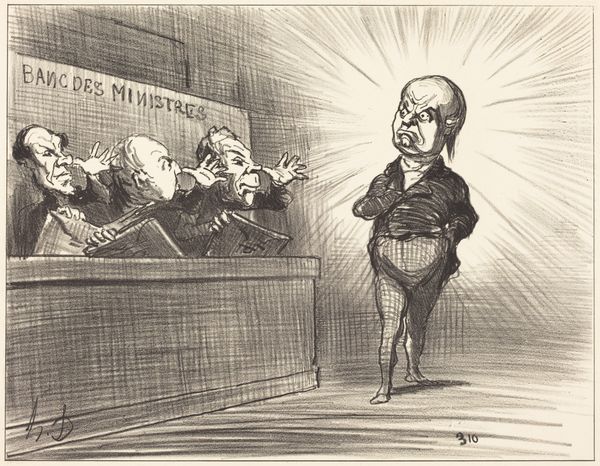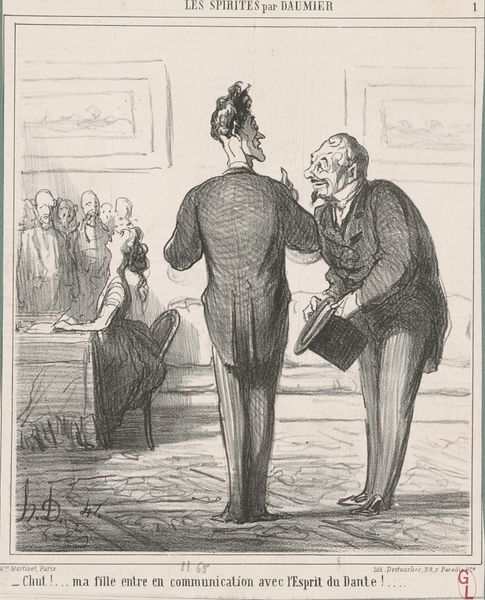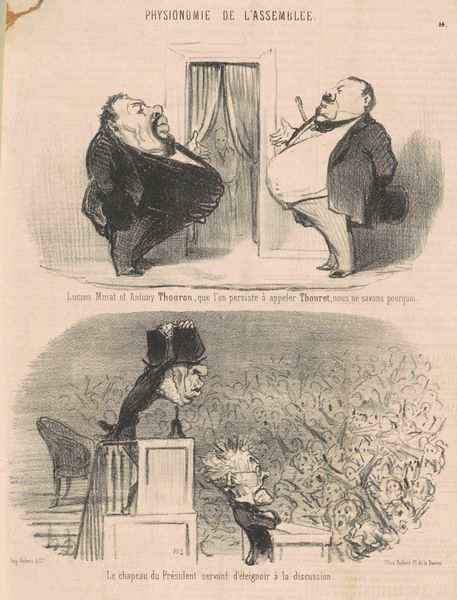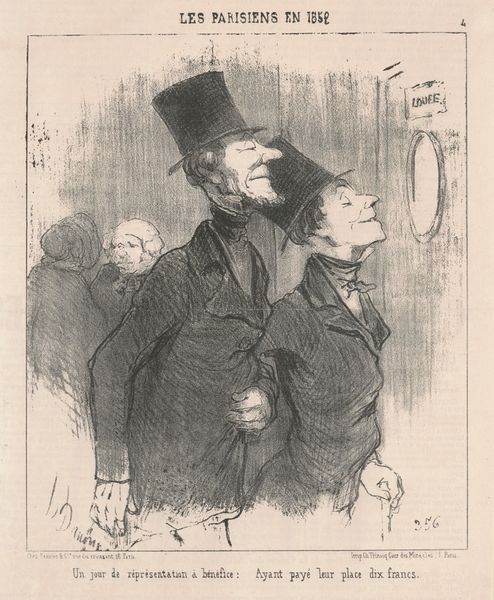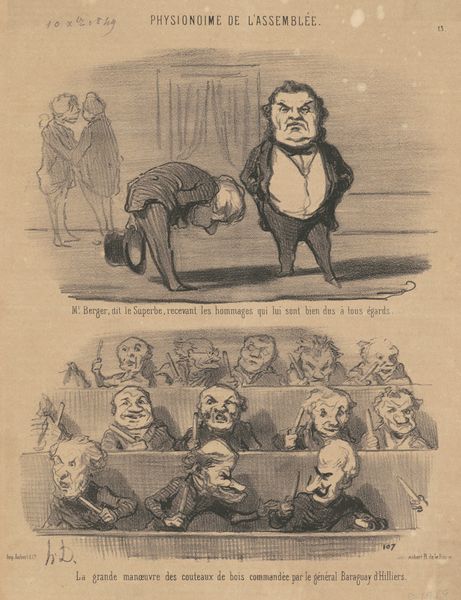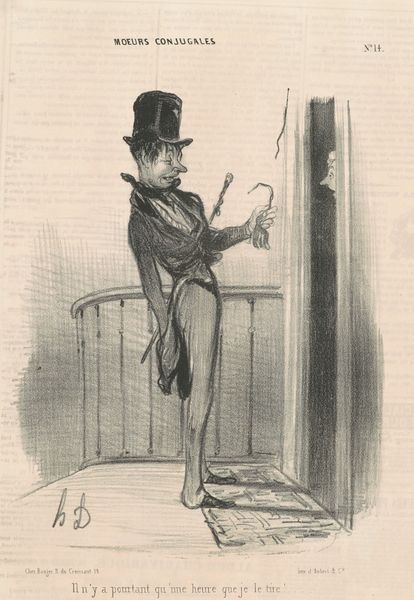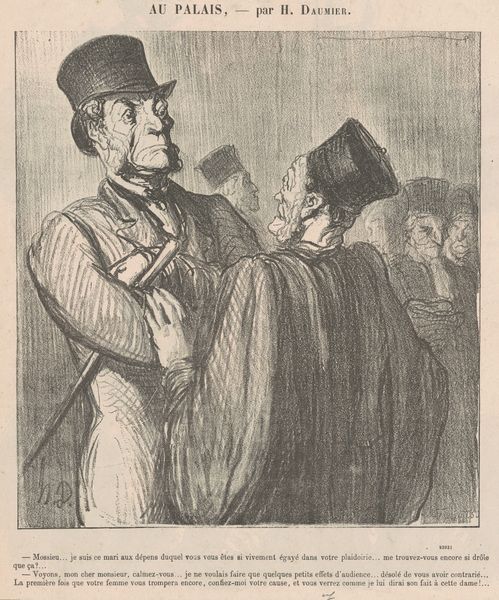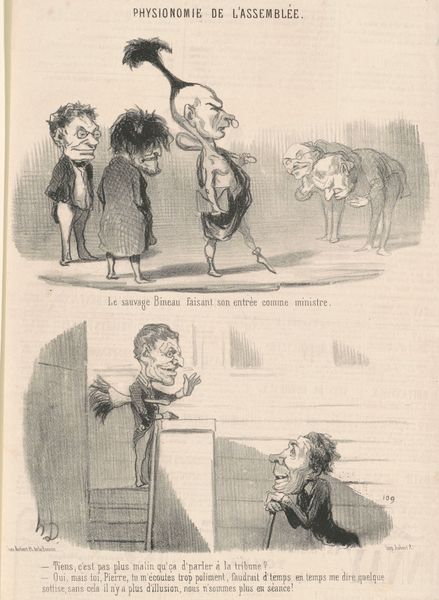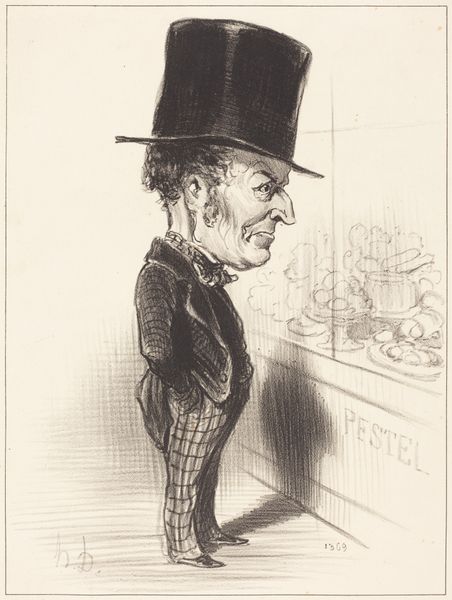
drawing, lithograph, print, graphite
#
portrait
#
drawing
#
lithograph
# print
#
caricature
#
caricature
#
romanticism
#
graphite
#
portrait drawing
#
genre-painting
Copyright: National Gallery of Art: CC0 1.0
Curator: M.L.P.F. Esquirou de Parieu, a lithograph from 1850 by Honoré Daumier. The process is as important as the portrait itself. What strikes you about this print? Editor: Well, the elongated features immediately grab attention. It's a caricature, right? But I also see what appears to be an audience drawn with very quick and simple marks. What do you see? Curator: Absolutely. The lithographic process is crucial here. Daumier’s skill lies in his efficient use of materials. This wasn't about precise representation but quick, reproducible critique. Think about the economics: prints made art accessible, democratizing images and ideas. Notice how he suggests volume and texture with minimal shading, leveraging the printing process. Editor: So, the value wasn't necessarily in a precious, one-of-a-kind artwork, but in its capacity to be widely distributed? How was that seen at the time? Curator: Precisely! Caricature was seen as a lower art form, often dismissed by the elite. But Daumier used it as a tool. This work challenges the established order, doesn't it? Each print becomes a piece of social commentary accessible to many. Consider the implications of readily available satirical depictions of power figures on paper... it shifts power dynamics! Editor: So it's not just about *who* is being depicted, but *how* the depiction reaches its audience. That’s fascinating! Thanks for broadening my perspective. Curator: The process itself embodies a political statement. Considering art's means of production transforms how we perceive it. A different lens reveals its potent social power!
Comments
No comments
Be the first to comment and join the conversation on the ultimate creative platform.
